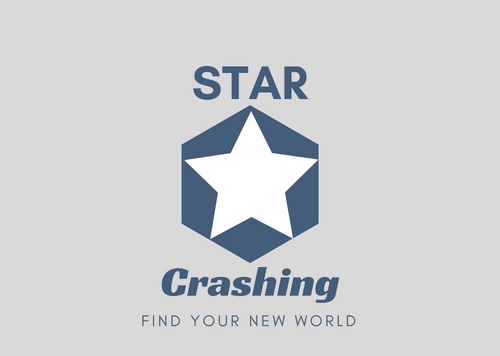A
few months back I wrote an article about the internet revitalizing board games, where I listed Kickstarter as a major contributor to board games being revitalized over the past few years. That, coupled with my recent activity supporting some upcoming games on Kickstarter, has made me realize how big the tool has become for many game designers and enthusiasts alike. Being able to fund a game without the backing of a lar ge publishing company may not seem like the most effective way to get to where you want to go, but taking the game to the masses and hoping the concept draws enough support is certainly becoming more common. There have been over 9,000 board games that were created and published through a Kickstarter campaign, including significantly popular games such as Exploding Kittens, Zombicide, and Dark Souls- the Board Game. Still, there is a limitation to the effectiveness of Kickstarter, and it has to be noted that it is only one of the many avenues for finding new and exciting games on the market. Here is a list of pros and cons for using Kickstarter as a means to fund your board game ideas:
ge publishing company may not seem like the most effective way to get to where you want to go, but taking the game to the masses and hoping the concept draws enough support is certainly becoming more common. There have been over 9,000 board games that were created and published through a Kickstarter campaign, including significantly popular games such as Exploding Kittens, Zombicide, and Dark Souls- the Board Game. Still, there is a limitation to the effectiveness of Kickstarter, and it has to be noted that it is only one of the many avenues for finding new and exciting games on the market. Here is a list of pros and cons for using Kickstarter as a means to fund your board game ideas:
Pros:
- You have full control of the process- For people who want to have full control of the creative process, having a publishing company come in and make decisions on how to proceed would be very bittersweet. There are plenty of people who probably feel like the freedom to make decisions without other interested parties is a blessing. While it does also equate to more work, for someone who has dedicated time and effort to creating a game a little extra management isn’t going to ruin things.
- Gather a strong fan base before the game is created- The great thing about Kickstarter is that your game doesn’t even have to be published and it can still grow a huge following. Depending on the number of backers and the prizes each backer signed up for, you could already have a large number of people to send games to right away. In addition, Kickstarters thrive on social media expansion, so the more a Kickstarter is advertised the more likely it is to gain more traction once it is finished.
- Easier access to funds than through publisher- It’s difficult to make the case that a Kickstarter game is going to have significantly more funds than if the game was published by a game company (Exploding Kittens being the possible exception), but there certainly is an ease of access that helps Kickstarter campaigns become beneficial to game designers. Once a successful Kickstarter campaign is completed, funds are transferred to the game creator within a matter of weeks to begin the creation/distribution phase. Gaming publishers, especially larger ones, most likely would take a lot longer to go through the process of devoting resources to a game.
- Lower risk post-funding- Because of the clientele already built up with the campaign, a game that is funded through Kickstarter already has a good following and a group of customers lined up to purchase the game. Because of this, a game funded by Kickstarter has less risk than one that is published directly from other funding. That isn’t to say that there is no risk whatsoever, but after the funds come through the game has a group of supporters right away to take advantage of.
- Cost-effective alternative to self-publishing with personal funds- There are certainly some people out there who have the ability to use their own money to create a game themselves, but for those of us without that kind of funding available having an option to receive funding directly from the consumer cannot be understated. People who never thought they would have a chance to bring a board game to life have suddenly received that opportunity thanks to Kickstarter.
Cons:
- Goal must be met in order to receive funding- The biggest con about Kickstarter is that if you miss your goal, even by a dollar, you do not receive any of your funds. This means that you could spend countless hours promoting the game and making a working prototype, only to not receive funding because you weren’t able to generate enough backing.
- Start-up costs incurred for prototypes, incentives, etc.- Ultimately you can’t just start up a Kickstarter with an idea- you have to have put a lot of time and resources into it if you want it to succeed through a Kickstarter campaign. This is true if you were going to fund your game any other way, but it is enhanced when using Kickstarter because of the rewards programs usually created in a project. In order to incentivize backers to pledge higher amounts, a campaign will provide additional incentives to people who give greater amounts to the campaign. While this does benefit the designer by giving them a clientele to work with right away, it also means that the costs of the initial game creation can potentially be higher than in other situations.
- Less name recognition than if game is published- This isn’t always the case, and is only really applicable when compared to a game that is published by a larger gaming company, but Kickstarter funded games don’t always carry the same weight as with a major publishing company like Hasbro or Iello. It’s also more difficult to get a Kickstarter funded game into the hands of major stores, because the large companies have a significant investment in getting their games on shelves.
While there are risks involved in setting up a Kickstarter campaign for a board game, ultimately if done well and with a good idea it can be the perfect way to create something you never thought you could. Any aspiring board game designers out there should give a long thought towards using Kickstarter for your next game idea!






Pingback: Overwhelmed: Committing to Board Game Design | The Boardwalk Games